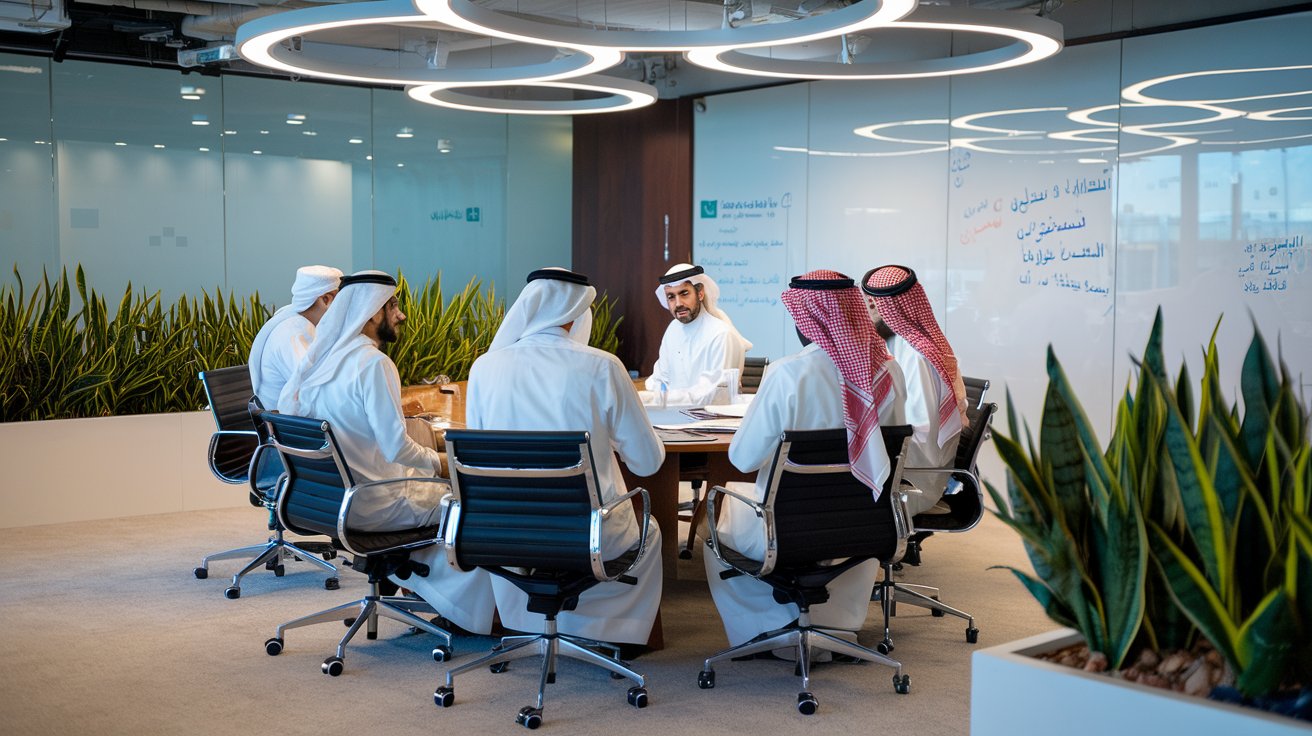No products in the cart.

The Khalifa Fund for Enterprise Development is an initiative that plays a critical role in fostering entrepreneurship across the Arab world, including Saudi Arabia (KSA). For any aspiring entrepreneur seeking funding from the Khalifa Fund, one of the essential steps is conducting a feasibility study. A well-prepared feasibility study not only increases the chances of securing financial support but also helps entrepreneurs clearly understand the viability of their business ideas. Below, we will outline the key aspects to consider when preparing a Khalifa Fund Feasibility Study in Saudi Arabia.
1. Market Analysis
A thorough market analysis is the foundation of a strong feasibility study. It’s essential to:
- Identify the target market: Understand the needs, preferences, and purchasing power of your audience.
- Analyze competitors: Study existing businesses, their market share, and pricing strategies.
- Demand and supply assessment: Evaluate whether there is sufficient demand for your product or service, and whether the supply chain can support your business.
In Saudi Arabia, emerging markets like technology, tourism, and healthcare offer promising opportunities for entrepreneurs. Understanding the unique dynamics of the Saudi market is crucial.
2. Regulatory and Legal Framework
KSA’s business environment is shaped by the Vision 2030 reforms, which encourage entrepreneurship. However, it’s important to:
- Understand local regulations: Be aware of the licenses, permits, and certifications needed to operate.
- Comply with sector-specific laws: Each sector, such as manufacturing, healthcare, or retail, has different legal requirements.
- Familiarize yourself with the taxation system of KSA, labor laws, and foreign ownership restrictions (if applicable). Data collection is a crucial part in KSA.
Read Also: Data Collection Companies in KSA
Adhering to these regulations ensures smooth business operations and helps secure Khalifa Fund approval.
3. Financial Viability
Financial projections are a critical part of the feasibility study. They demonstrate the financial sustainability and profitability of the business idea. Important components include:
- Start-up costs: This includes capital for infrastructure, equipment, marketing, and initial salaries.
- Break-even analysis: Calculate the time and sales required to cover your initial investment.
- Cash flow projections: Estimate revenue, costs, and profit margins over time to prove that the business will generate a steady income.
Clear, realistic financial projections instill confidence in the viability of the business and show that it can deliver returns.
4. Risk Analysis and Mitigation
In Saudi Arabia’s rapidly evolving economy, identifying potential risks and planning mitigation strategies is key. Key risks might include:
- Economic shifts: Changes in oil prices or global economic trends can affect local markets.
- Competition: New competitors can arise quickly in growing industries.
- Operational challenges: For example, logistics, supply chain issues, or unexpected costs.
Addressing these risks shows the Khalifa Fund that you have a solid strategy to handle challenges, ensuring long-term success.
5. Technical Feasibility
Understanding whether the technical resources required to execute your business idea are available is essential. In KSA, factors to consider include:
- Infrastructure: Is there adequate access to facilities, machinery, or technology in your chosen location?
- Skilled labor: Does your business require specialized employees, and can you find them locally?
- Suppliers: Are there reliable suppliers that can meet your operational needs consistently?
For example, technology startups might require access to high-speed internet and skilled software engineers, while manufacturing businesses need industrial facilities and raw materials.
6. Alignment with Vision 2030
Saudi Arabia’s Vision 2030 initiative aims to diversify the economy away from oil dependence by promoting sectors such as renewable energy, tourism, and entertainment. When preparing your feasibility study, it’s beneficial to demonstrate how your business aligns with these goals. Highlighting that your venture supports Vision 2030 could increase the likelihood of funding approval from the Khalifa Fund.
7. Social and Environmental Impact
The Khalifa Fund is particularly interested in supporting projects that contribute positively to society. In Saudi Arabia, focus on how your business will:
- Create employment opportunities for Saudis.
- Support local communities through corporate social responsibility (CSR).
- Contribute to sustainability efforts, such as reducing carbon footprints or promoting renewable energy.
Conclusion
Conducting a Khalifa Fund Feasibility Study in Saudi Arabia requires a detailed and strategic approach. By focusing on market analysis, financial viability, regulatory compliance, and aligning with Vision 2030, entrepreneurs can increase their chances of securing funding and creating a successful business. A well-structured feasibility study will serve as a roadmap for your business, ensuring that you have anticipated potential challenges and are prepared to meet them.
Previous Post
Khalifa Fund Feasibility Study in Dubai
 Demos
Demos  Docs
Docs  Support
Support 




